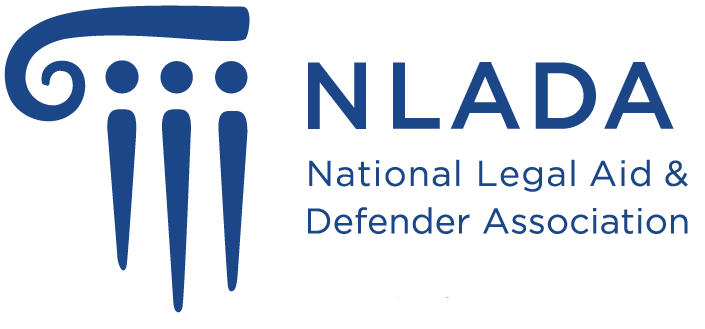In the United States, individuals accused of crime who cannot afford a lawyer, and who face a possible sentence of incarceration, are entitled to have counsel appointed at government expense. Yet in most states, the right to appointed counsel does not mean free counsel. The majority of states have laws that seek to extract payment from very poor individuals as they exercise their constitutional right to counsel. To understand the extent of the use of these laws, NLADA conducted statutory research into all 50 states and the District of Columbia into two fees associated with public defense: 1) upfront application/administrative fees and 2) recoupment fees to reimburse the government cost of representation. The main data points tracked in the statutory analysis were:
Map 1: Whether statute authorizes the assessment of an upfront application or administrative fee;
Map 2: Whether statute authorizes the assessment of a cost of counsel reimbursement fee (also called recoupment);
Map 3: Whether statute makes payment of these fees a condition of probation;
Map 4: Who determines whether a person qualifies for appointed counsel; and
Map 5: Whether revenue from these fees supports the public defense system.
This research examined fees assessed in the adult criminal legal system. Detailed explanations for why these data points were chosen are outlined in our national report on public defense system fees, At What Cost? Findings from an Examination into the Imposition of Public Defense System Fees. The report also contains much more information on practices surrounding imposition of these fees and their consequences. Generally, NLADA found that across the country there is widespread authorization for the imposition of these fees. California, Hawaii, Mississippi, Nebraska, New York, Rhode Island, and Pennsylvania are the only states that do not have statutes that allow for any public defense system fees to be assessed onto defendants who have been deemed too poor to pay for counsel.
WebMap: Does State Law Authorize Upfront Application/Appointment Fees for People Seeking Court-Appointed Counsel?
Overall Findings: Public Defense System Fee Assessments
- 18 states have statutory upfront application/appointment fees.
Utah is the only state with a statute that prohibits the assessment of upfront fees onto applicants for court-appointed counsel. California, Kentucky, and New Jersey each previously had laws that allowed for the assessment of an upfront fee, which have been repealed.
- 42 states and the District of Columbia have laws authorizing the assessment of fees onto defendants for the cost of their appointed legal counsel.
California, Delaware, Hawaii, Mississippi, Nebraska, New York, Pennsylvania, Rhode Island do not have state statutes that allow for these fees. In the majority of these jurisdictions, these fees were never created. California’s fee was repealed. While Mississippi has no statute authorizing imposition of a counsel reimbursement fee, defense attorneys there report that such a fee is indeed imposed in some counties.
- 30 states have statutes allowing for payment of public defense system fees to become a condition of probation.
Eleven states and the District of Columbia do not address this practice in their statutes. Of the 9 remaining states, 7 of them do not assess any fees onto low-income defendants for the cost of court-appointed counsel. The remaining two states, Indiana and Minnesota, have statutes that prohibit unpaid fees from becoming a condition of probation.
- 24 states allow for some or all of the revenue generated from these fees to be distributed back into the public defense delivery system.
For more information and to discuss this research project, please contact Marea Beeman at [email protected]
This work was made possible by the generous support of Charles and Lynn Schusterman Family Philanthropies.
 At What Cost? Findings from an Examination into the Imposition of Public Defense System Fees
At What Cost? Findings from an Examination into the Imposition of Public Defense System Fees
This report explores the widespread imposition of fees onto people who exercise their Constitutional right to have counsel appointed at state expense. Two fees are the subject of the report: upfront application - or administrative – fees, and recoupment fees. The report documents the harms these fees inflict on individuals who struggle to repay them.
